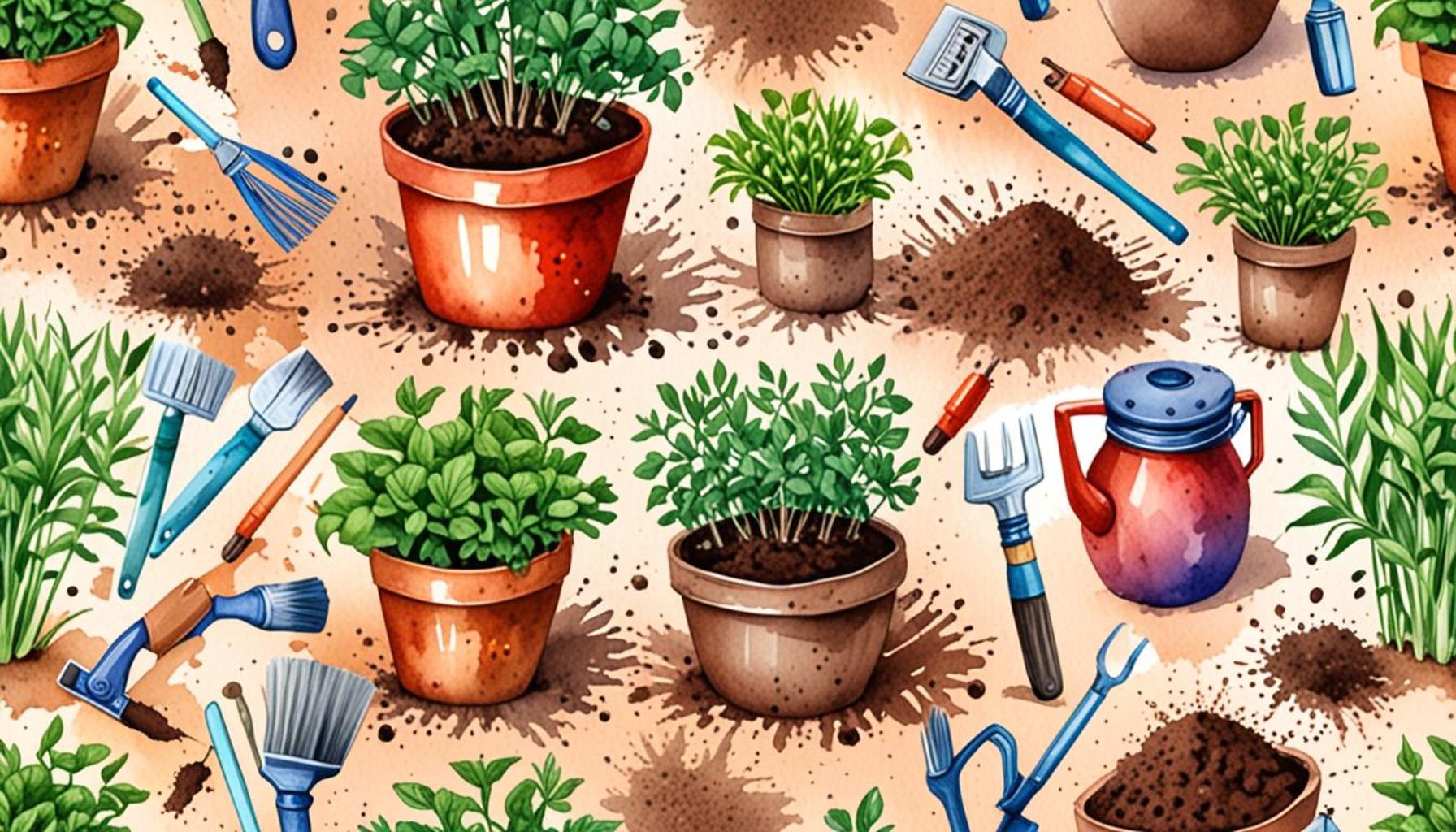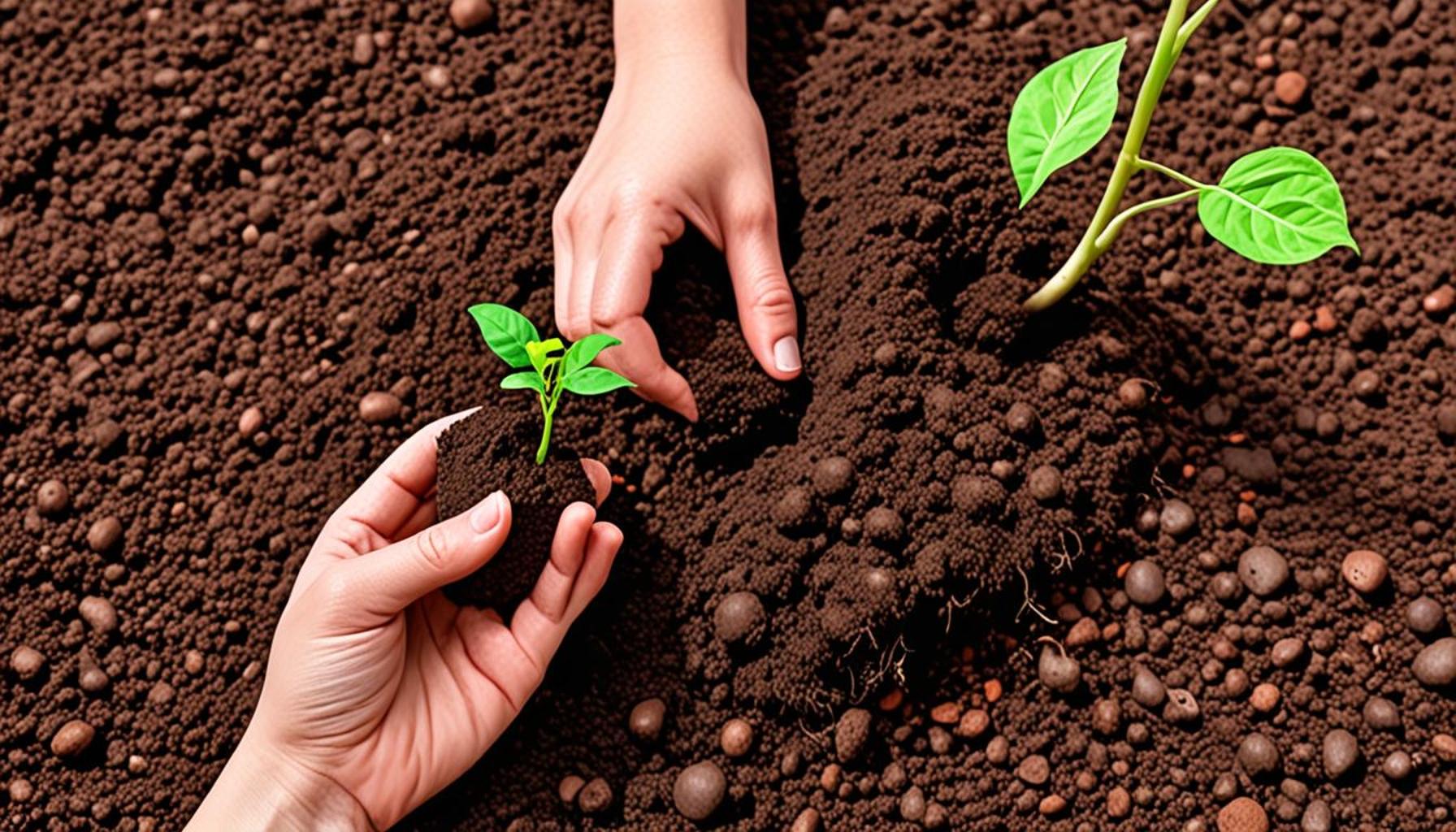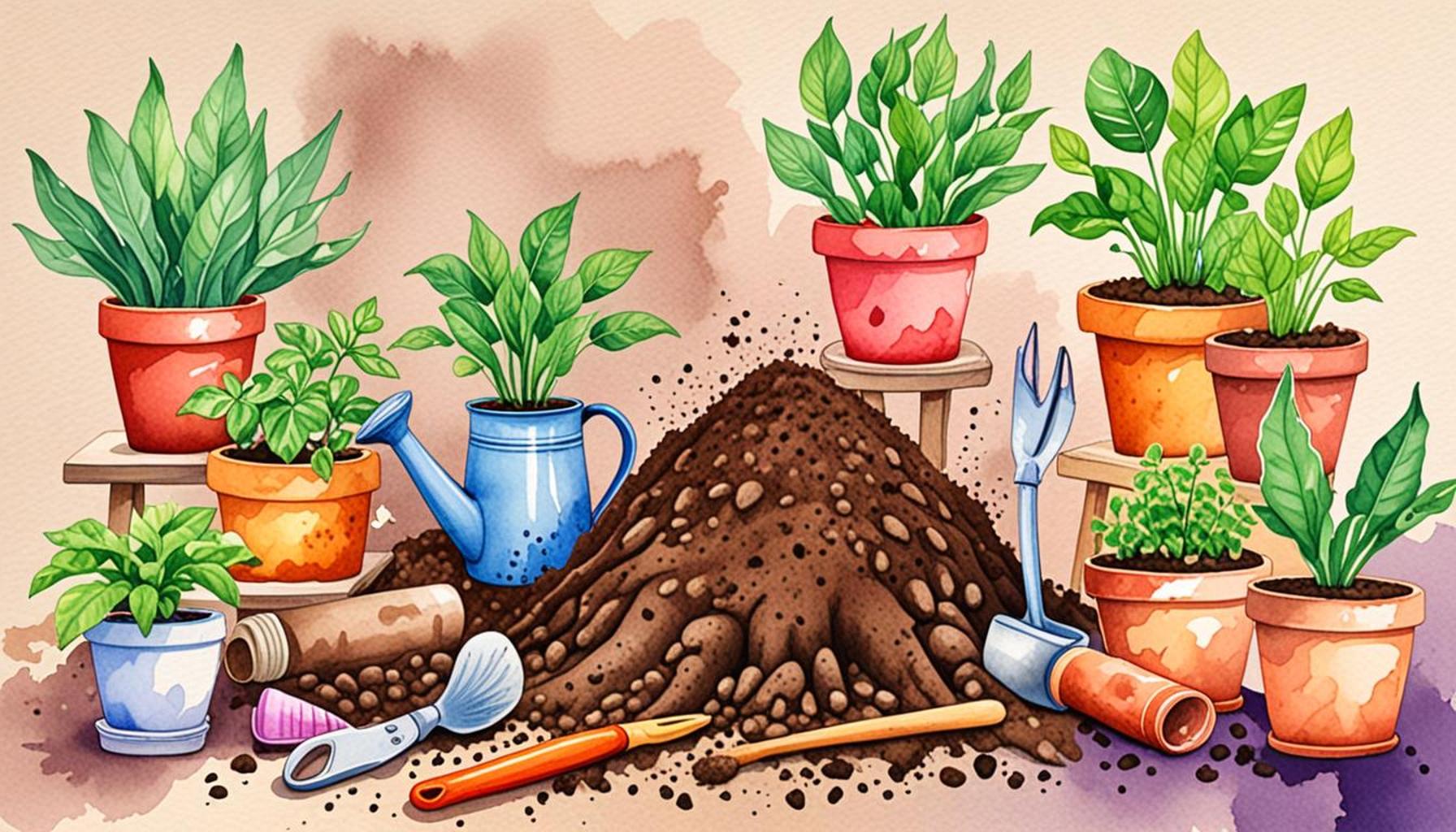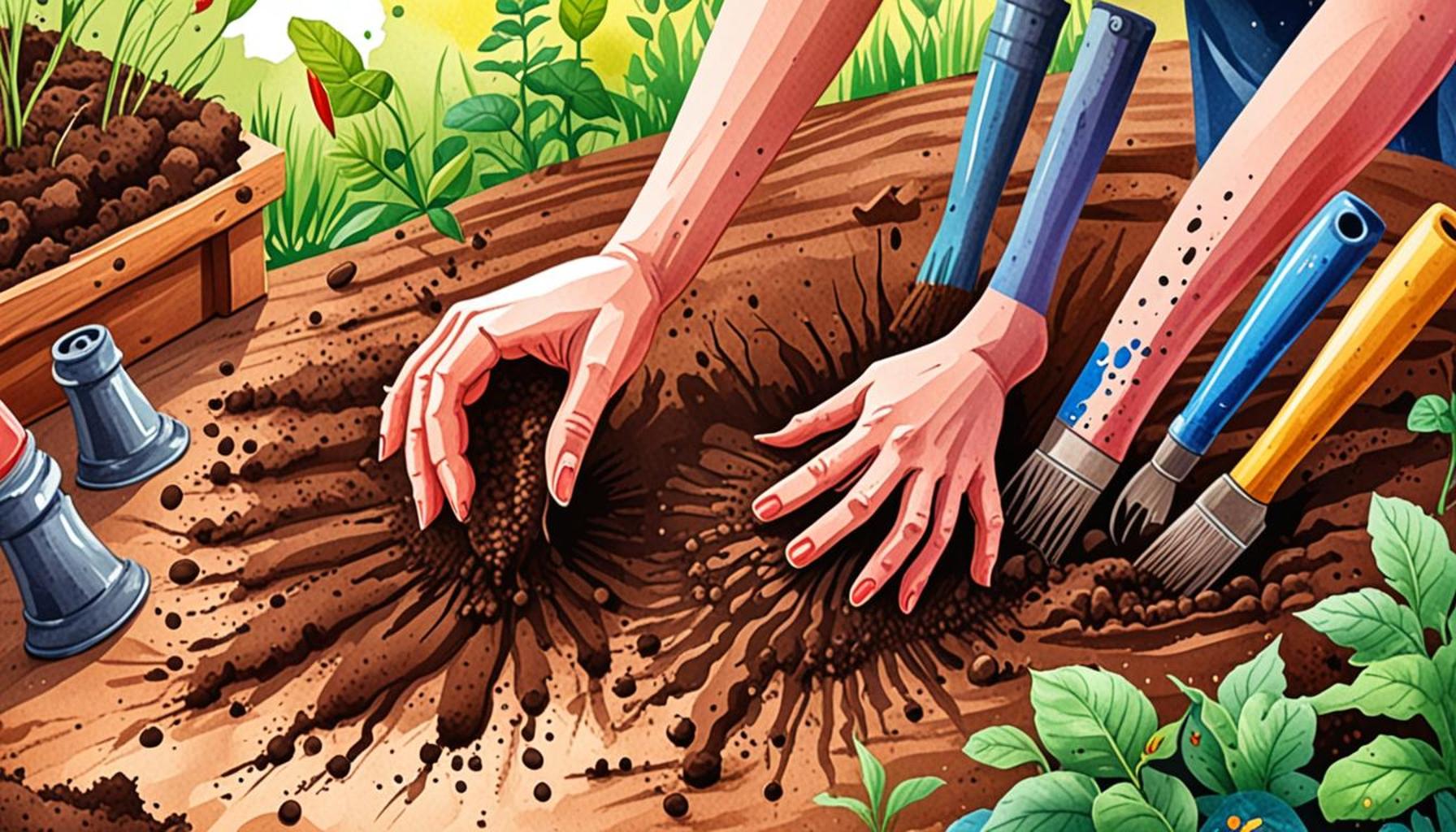Essential Tools for Soil Preparation in Home Gardening

Essential Tools for Soil Preparation
Creating a successful garden begins beneath the surface, where quality soil serves as the foundation for flourishing plants and vibrant vegetables. The right soil not only nourishes plants but also affects their growth, resilience, and overall health. Preparing soil effectively can feel overwhelming without the proper knowledge, but with the right information and tools, you can transform your gardening endeavor into a flourishing landscape.
The Importance of a Good Start
To ensure your plants thrive, you must first consider the essential tools for soil preparation. Each instrument serves a unique purpose, helping to maximize the potential of your planting area. Here is an expanded look at these key tools:
- Garden Fork: A garden fork is indispensable when it comes to loosening compacted soil. This tool allows gardeners to break up hard ground, which improves root penetration and promotes a healthier soil structure. For example, when preparing a new flower bed, a garden fork helps in aerating the soil, ensuring that water and nutrients can easily reach the plant roots.
- Shovel: This fundamental tool is essential for digging and moving soil. Whether you’re creating new planting beds or transferring soil for leveling purposes, a sturdy shovel makes these tasks more manageable. For example, when planting a tree, you’ll need a shovel to dig a hole deep enough to accommodate the root ball, ensuring proper growth.
- Soil Test Kit: Understanding the composition of your soil is critical for successful gardening. A soil test kit measures pH and nutrient levels, helping you determine whether your soil is acidic, alkaline, or balanced. This information can guide you in amending the soil with fertilizers or organic matter that precisely meet the needs of the plants you wish to cultivate.
- Rototiller: If you’re managing a larger garden, a rototiller can be incredibly beneficial. This motorized tool helps mix soil amendments like compost or peat moss into the existing soil, ensuring an even distribution of nutrients. For instance, incorporating organic matter with a rototiller can significantly enhance the soil’s fertility and moisture retention, leading to tastier vegetables.
- Rake: After loosening your soil, a rake becomes a vital tool for leveling and breaking up soil clumps. It will smooth the surface, making it easier to sow seeds evenly and promote good seed-to-soil contact, which is essential for germination. Picture preparing a vegetable patch; a smooth, well-raked surface helps create neat rows for planting.
The Benefits of Investing in Soil Preparation
Investing time and effort into soil preparation using these tools can significantly enhance your gardening experience. Healthy, well-aerated soil not only provides essential nutrients for your plants but also improves drainage and reduces the risk of root diseases. This means your garden is more likely to thrive, yielding bountiful harvests of fresh vegetables and beautiful flowers.
So as you embark on your gardening adventure, remember that the journey starts from below. Equip yourself with the right soil preparation tools, and you’ll be well on your way to cultivating a garden that flourishes with life, color, and abundance!
DIVE DEEPER: Click here for insights on mulching for plant health
Understanding Your Gardening Needs
Before diving into the world of soil preparation, it’s crucial to understand the specific needs of your garden. Different plants thrive in different soil conditions, making it essential to select the right tools tailored to your gardening goals. Knowing which tools to use will not only enhance the quality of your soil but also save you time and effort in the long run.
Analyzing Soil Composition
One of the first steps in soil preparation involves analyzing what type of soil you have. This is where a soil test kit becomes invaluable. Available at most garden centers or online, these kits help you identify the nutrient levels and pH balance of your soil. Testing your soil provides critical insights and helps determine if you need to amend it with organic materials such as compost or peat moss. For instance, if your soil test reveals that the pH is too low (acidic), you may need to add lime to raise the pH and create a more favorable environment for plant growth.
Essential Tools for Soil Preparation
Once you’ve assessed your soil, the next step is to gather the right tools for the job. Each tool contributes significantly to creating an optimal growing environment. Here are some of the most important tools you should consider:
- Hand Trowel: This compact, handheld tool is perfect for digging small holes, transplanting seedlings, or adding soil amendments. It allows for precision work in compact spaces.
- Garden Hoe: An excellent tool for breaking up soil crust and weeding. The pointed end can cultivate soil effectively while the flat end helps level out the soil surface.
- Compost Bin: Investing in a compost bin can turn kitchen scraps and yard waste into nutrient-rich compost. This material can then be mixed into the soil to improve fertility and structure.
- Garden Rake: In addition to leveling soil, a rake can also help remove debris from your garden beds, creating a clean slate for planting.
- Wheelbarrow: When dealing with large amounts of soil or compost, a wheelbarrow is essential for transporting materials effortlessly around your garden.
Each of these tools plays a vital role in preparing your soil for planting. By investing in quality tools, you not only streamline the preparation process but also increase the chances of your plants thriving.
The Long-Term Benefits of Proper Soil Preparation
Ultimately, paying attention to soil preparation will pay off in numerous ways. Healthy soil enhances plant growth and improves the overall ecology of your garden. By utilizing the essential tools outlined in this article, you can achieve a thriving home garden that rewards you with bountiful crops and beautiful blooms season after season.
| Essential Tool | Benefits |
|---|---|
| Garden Fork | A garden fork is a versatile tool for aerating soil and breaking up compacted areas, making it essential for effective soil preparation. |
| Tiller | Utilizing a tiller can significantly reduce labor time and enhance soil mixing, leading to healthier garden ecosystems. |
| Soil Test Kit | A soil test kit provides valuable information on pH and nutrient levels, allowing gardeners to amend soil properly for optimal plant growth. |
| Compost Bin | By using a compost bin, gardeners can efficiently recycle organic matter, enriching the soil with nutrients that enhance fertility. |
DIVE DEEPER: Click here for essential pest control tips
Advanced Soil Preparation Techniques
While traditional tools are foundational for soil preparation, enhancing your gardening experience can involve exploring advanced methods and tools. As gardening evolves, many innovative tools emerge, each promising to simplify your gardening tasks. Understanding these advancements can empower you to create an even better growing environment for your plants.
Soil Aerators
A key component of healthy soil is its ability to breathe, which is where a soil aerator comes in. This tool perforates the soil, allowing essential oxygen, nutrients, and water to penetrate deeper into the ground. Aeration is particularly important for densely packed soils or heavy clay types that can restrict root growth. Compact soil can lead to poor drainage and inhibit plant growth, resulting in stunted plants. Investing in a manual or powered aerator can significantly improve the structure and health of your garden soil.
Soil Cultivators
A soil cultivator is another beneficial tool for preparing your soil for planting. Unlike the standard garden hoe, a cultivator is designed with multiple tines that can break up the soil more efficiently. This tool loosens dirt while mixing in organic matter, ensuring nutrients are evenly distributed. Whether you choose a hand-held model for small areas or a powered cultivator for larger plots, this tool enables you to cultivate your garden with minimal effort and maximum effectiveness.
Rototillers
If you manage a larger garden, a rototiller can be a game-changer. This powerful machine mixes soil and amendments quickly, saving you time especially during the preparation phase. Rototillers break up the ground thoroughly and can handle tough soil conditions, facilitating deeper mixes of compost and other nutrients. However, one should use this tool judiciously, as over-tilling can disrupt soil organisms and compact the subsoil, making it difficult for roots to grow.
Mulching Tools
Once soil preparation is complete, the use of mulching tools becomes essential for maintaining soil health. A mulcher helps in processing organic materials into mulch, which can then be spread across your garden beds. Mulching serves several purposes: it conserves soil moisture, suppresses weed growth, and adds organic matter back to the soil as it breaks down over time. Investing in a good mulcher can help you create a sustainable gardening practice while ensuring your plants have the best possible start.
Organic Matter Incorporation Tools
Lastly, incorporating organic matter into your soil is crucial for maintaining fertility. Using a garden fork allows you to mix compost, aged manure, or other organic materials into the soil effectively. This tool can reach deeper layers without disturbing the soil structure too much, ensuring that beneficial microorganisms remain intact. Regularly adding organic matter can improve your soil’s nutrient-holding capacity, ensuring your plants have the nutrients they need to flourish.
By broadening your toolset beyond the basics, you can unlock new potentials for your home garden. Investing in advanced soil preparation tools ensures that your plants not only survive but thrive in your meticulously prepared soil.
DISCOVER MORE: Click here to learn about resilient plants
Conclusion: Empowering Your Garden with the Right Tools
In the world of home gardening, soil preparation stands as the cornerstone of a flourishing garden. The tools you choose can make a significant difference in not only the ease of your gardening tasks but also in the health and productivity of your plants. From the simplicity of garden forks to the efficiency of rototillers and the sophistication of soil aerators, each tool serves a unique purpose in creating a conducive environment for growth.
Equipping yourself with these essential tools not only enhances your gardening experience but also contributes to better soil fertility and structure. This, in turn, fosters a thriving ecosystem for your plants, ensuring they receive the nutrients, water, and aeration they need. Remember, the journey of gardening is just as important as the outcome, and having the right tools can transform the challenges into enjoyable tasks.
As you delve deeper into the world of gardening, consider exploring new technologies and methods to further refine your approach. Stay informed about advancements in gardening tools and practices that can elevate your soil preparation techniques. Whether you’re starting a small vegetable patch or managing an expansive garden, the right tools will empower you to cultivate a garden that not only looks beautiful but flourishes with life.
With this knowledge, you are now ready to invest in your gardening future. Begin with the essential tools discussed, and watch your garden come to life as you nurture it with care and precision.


